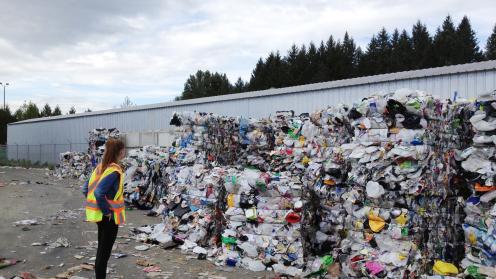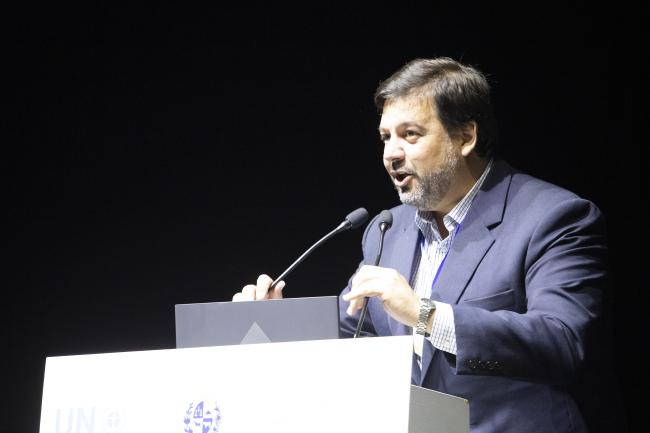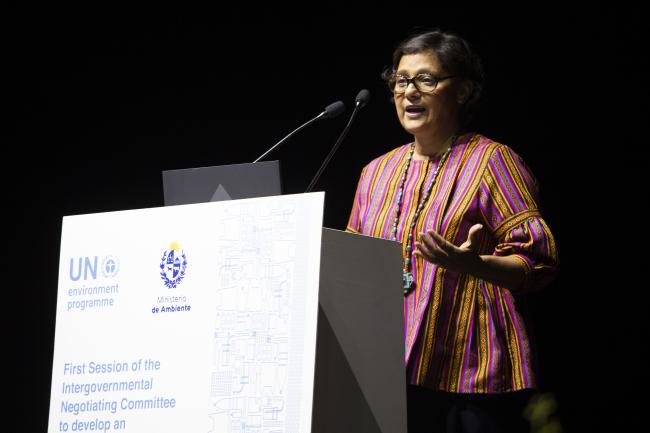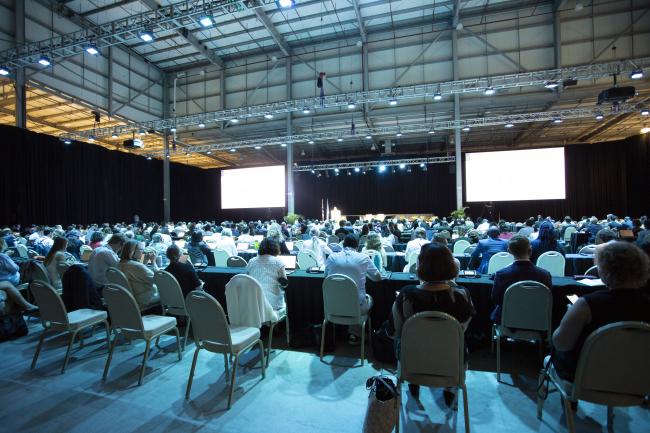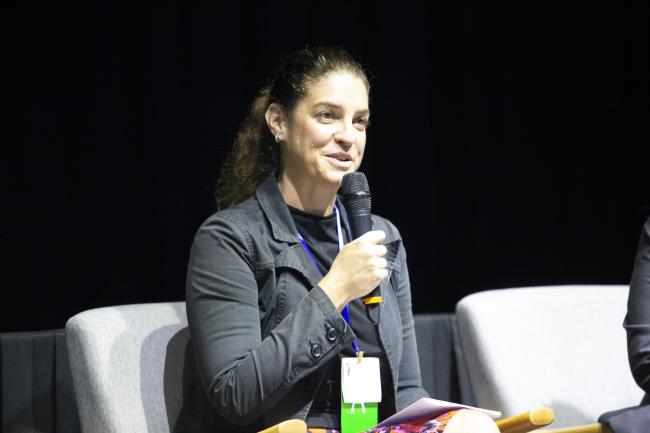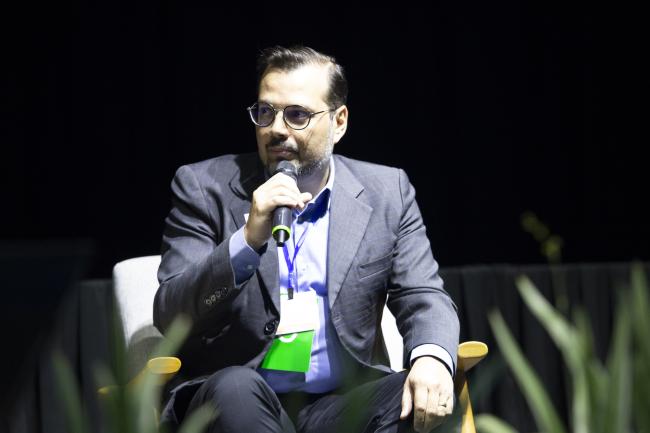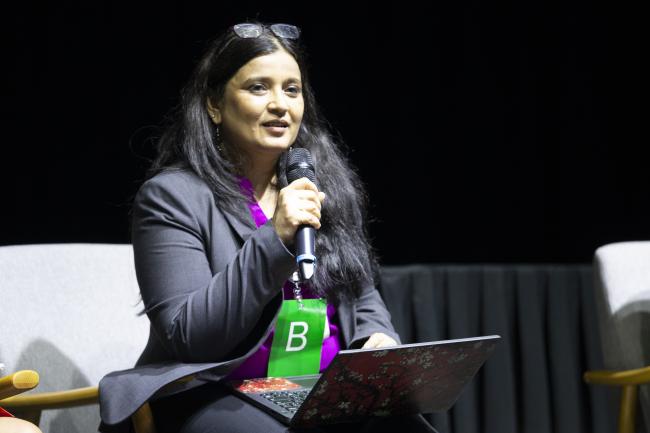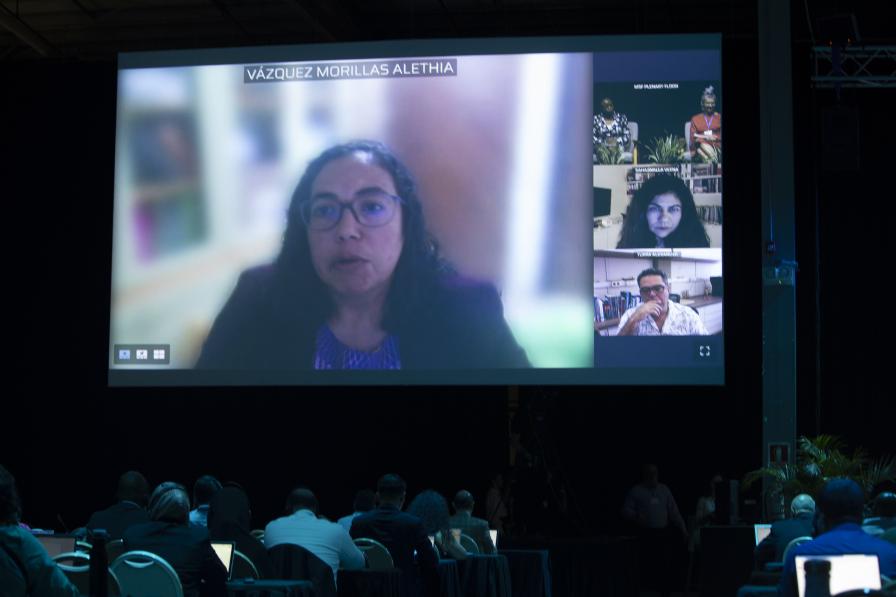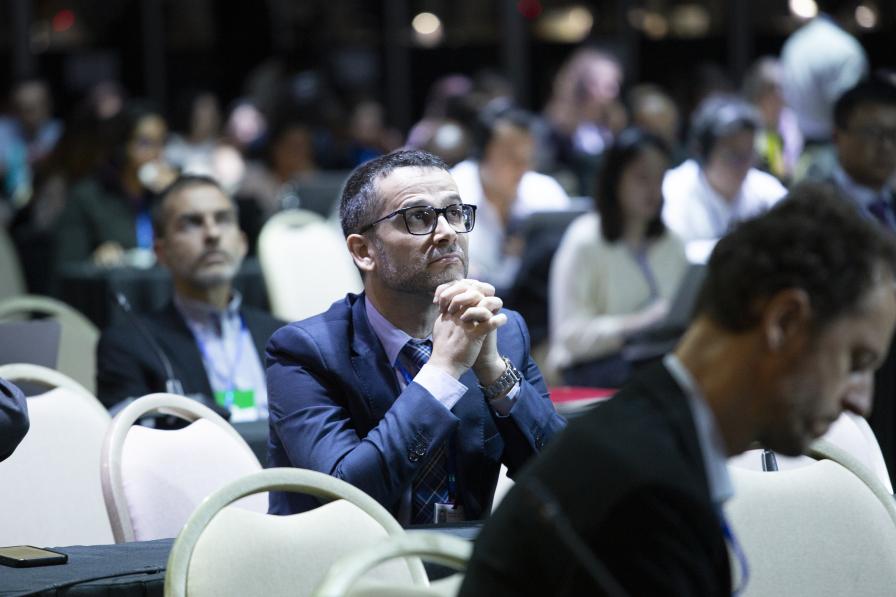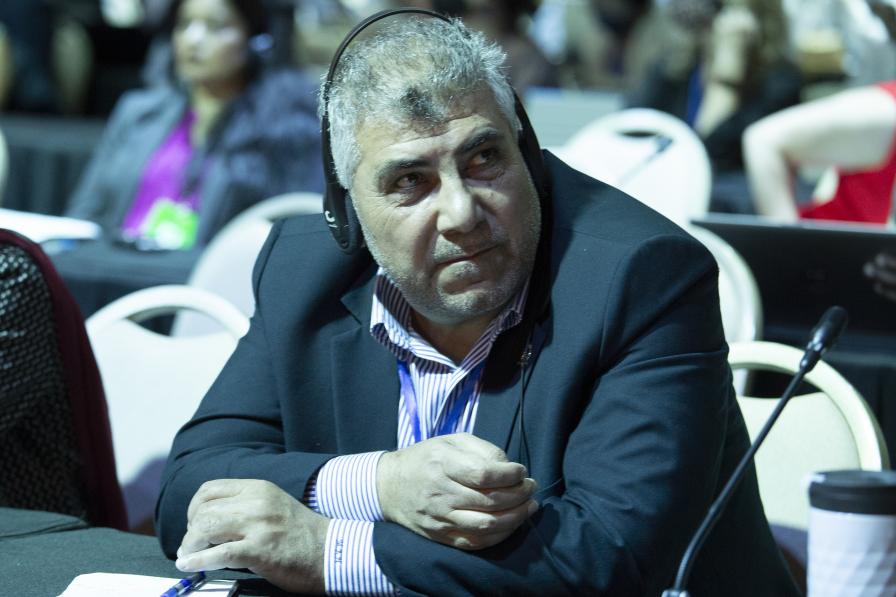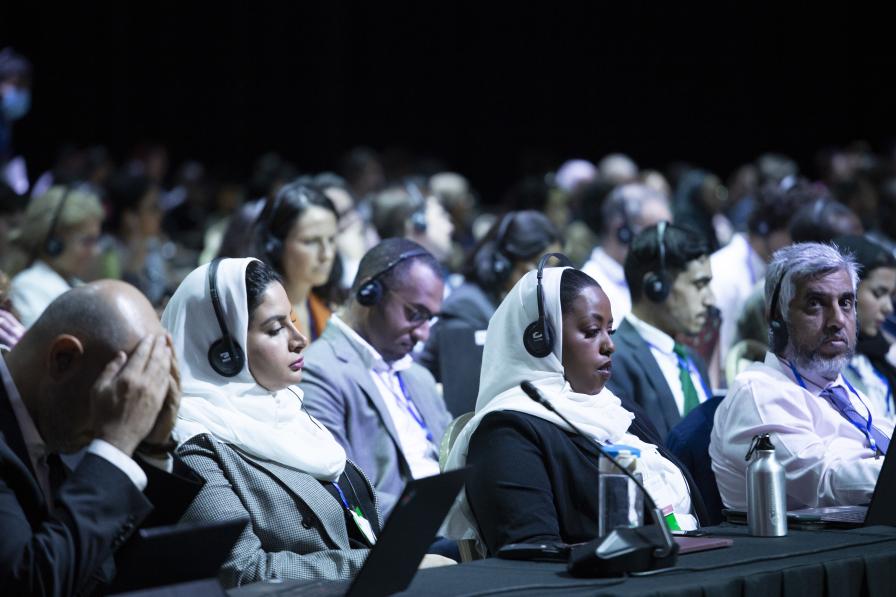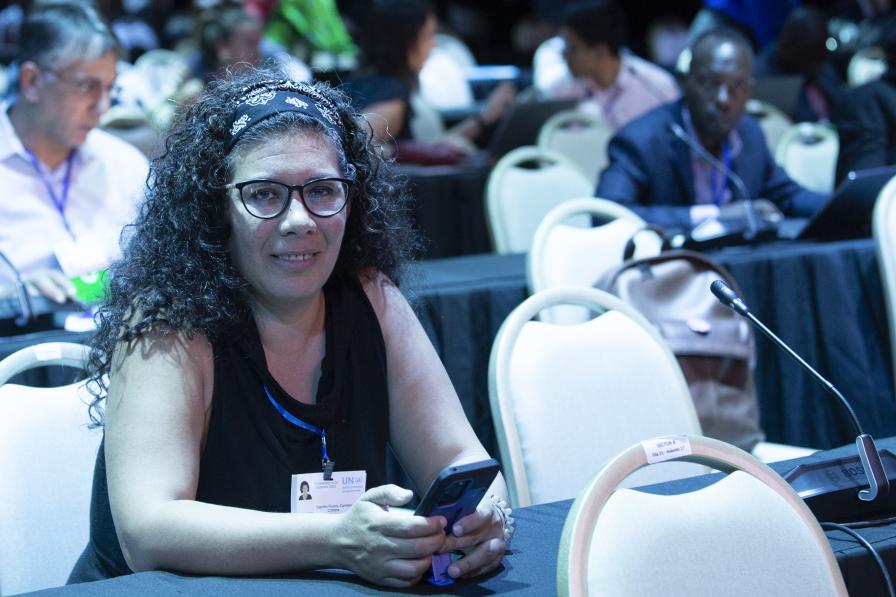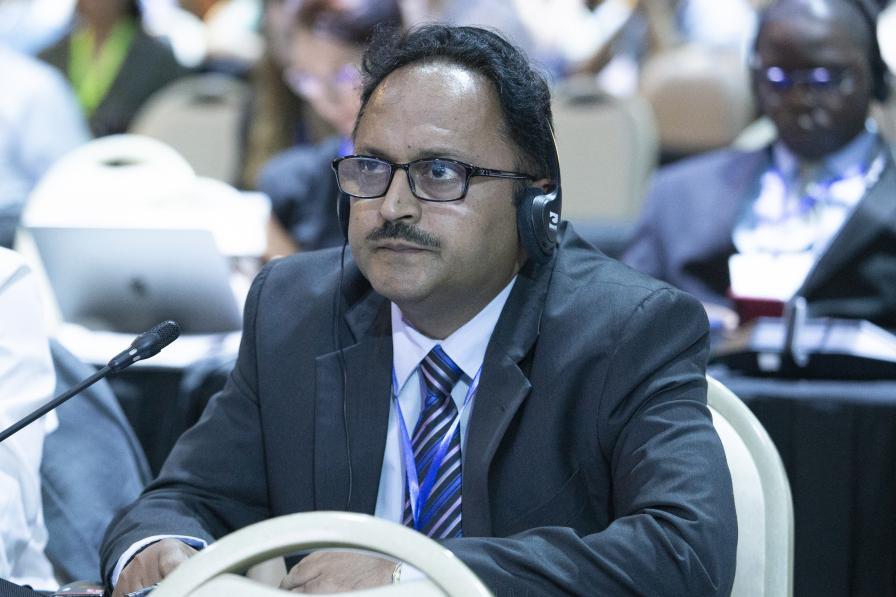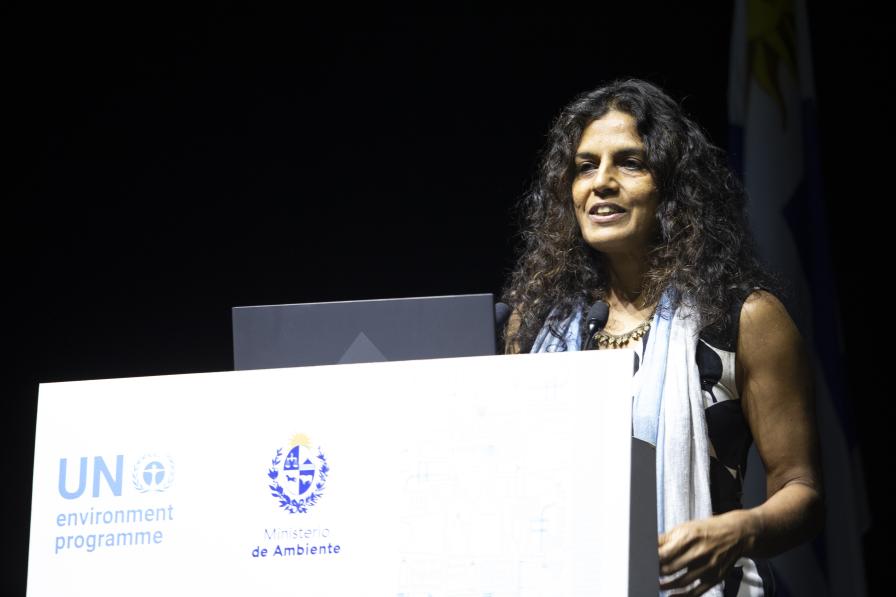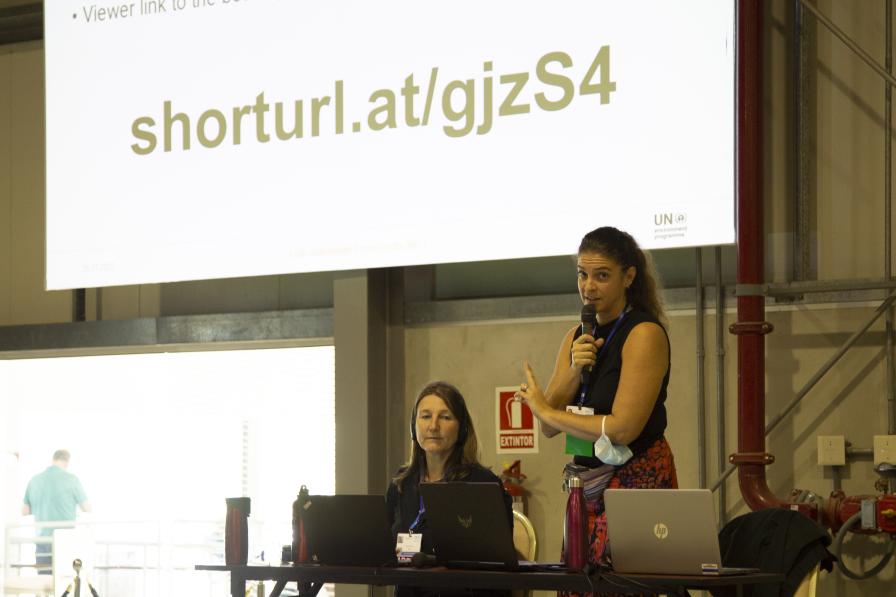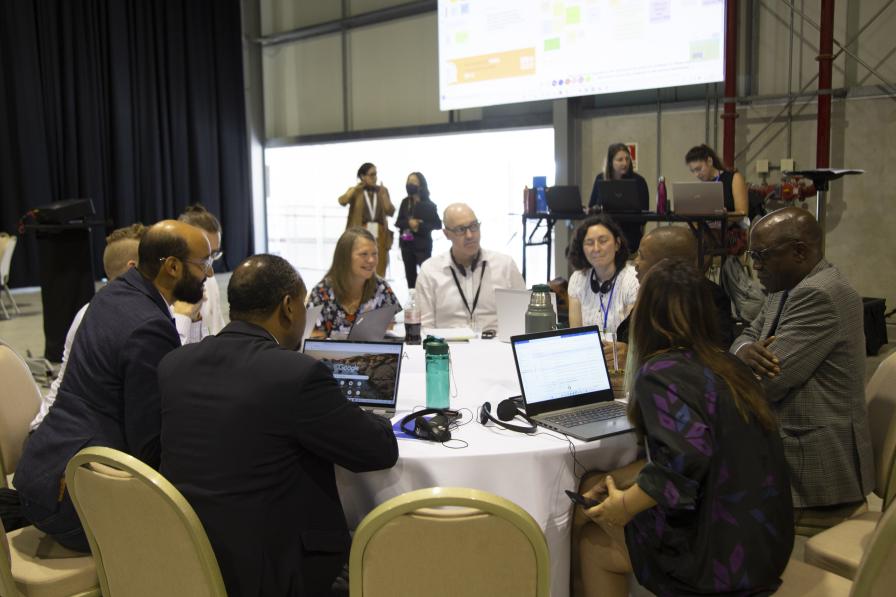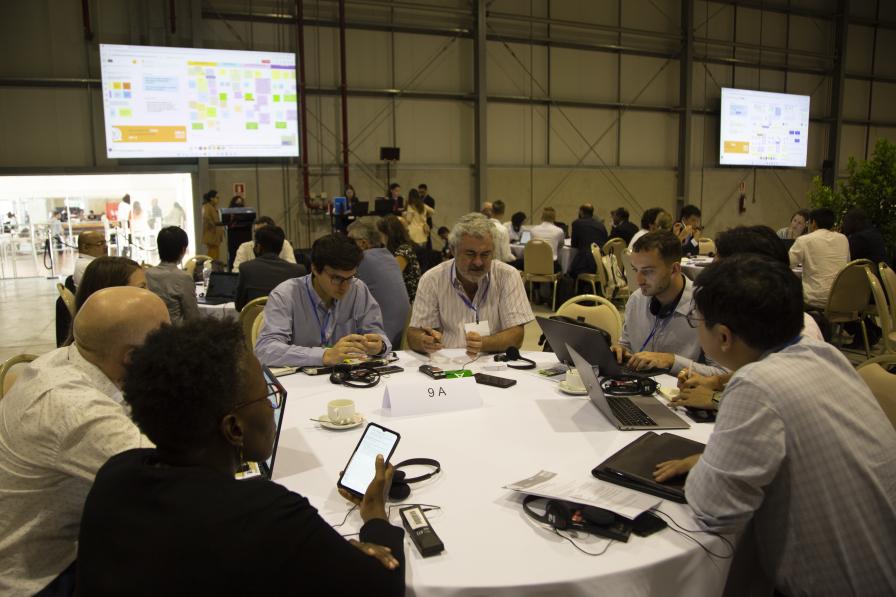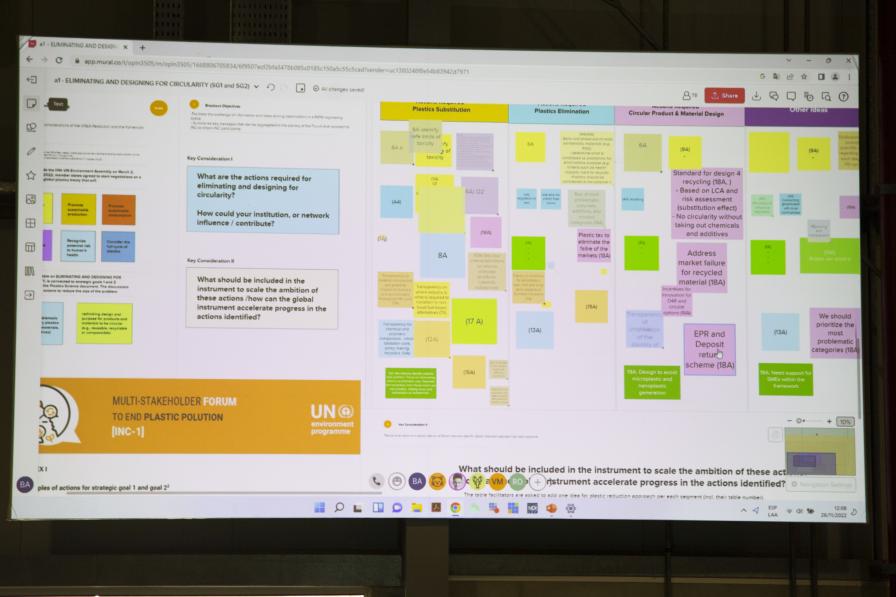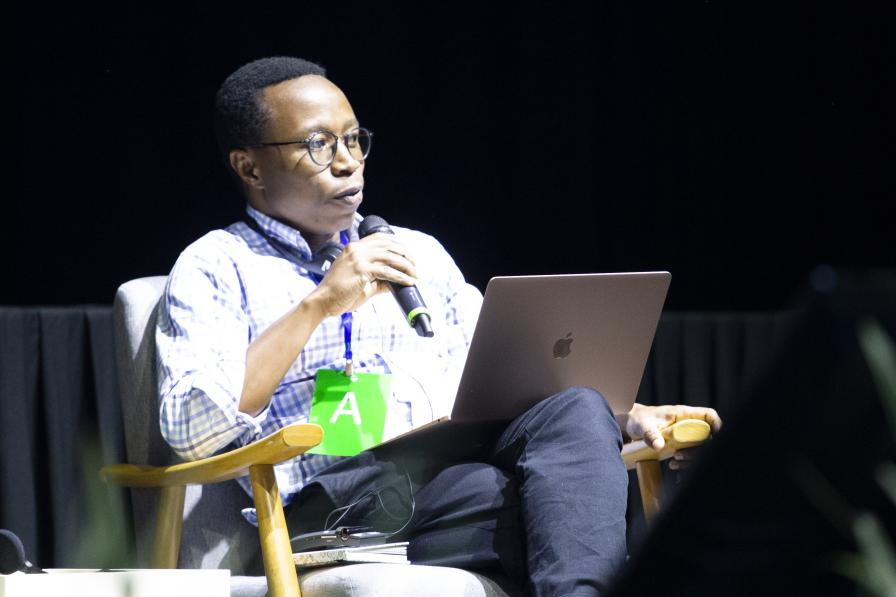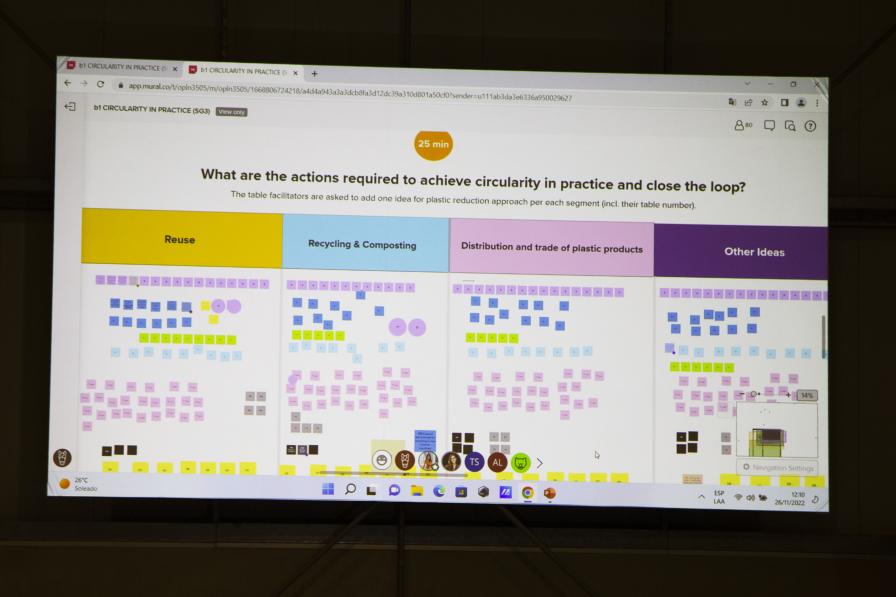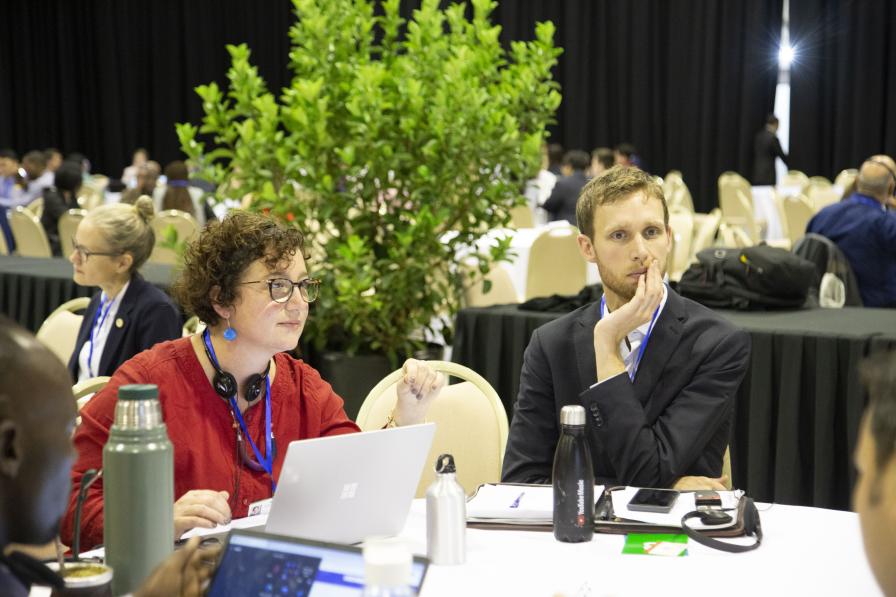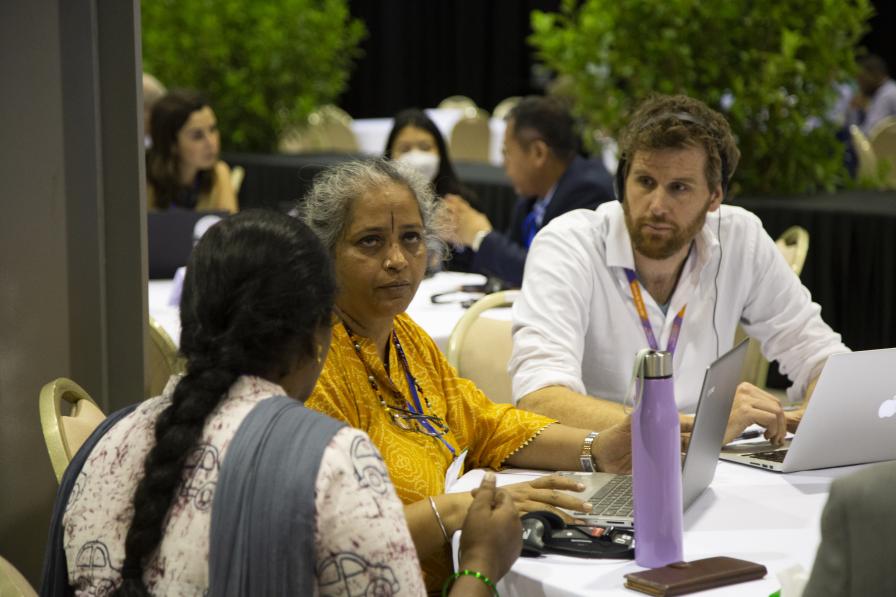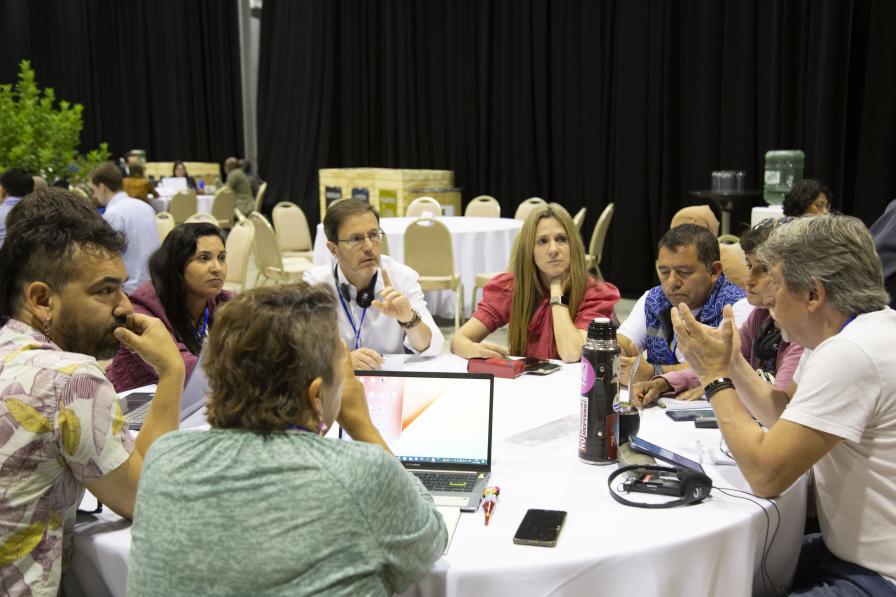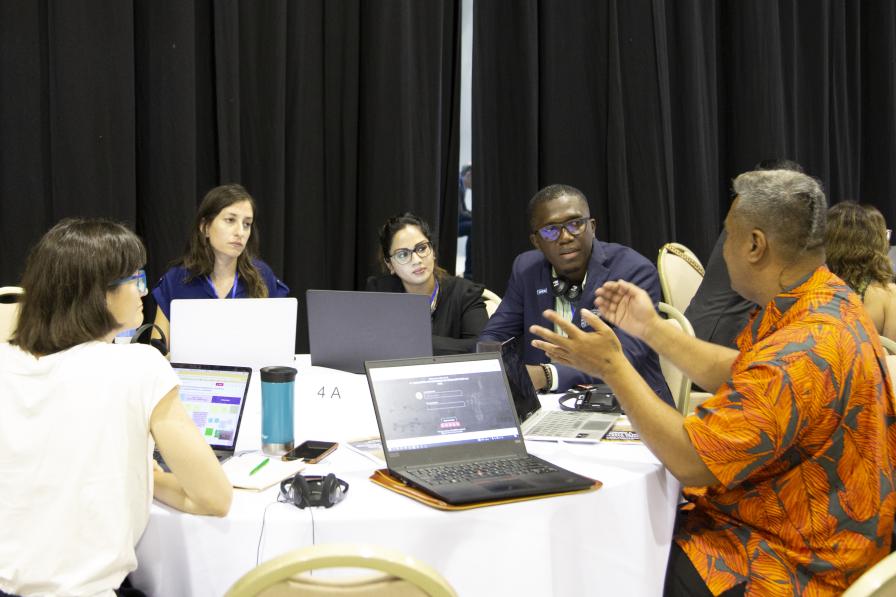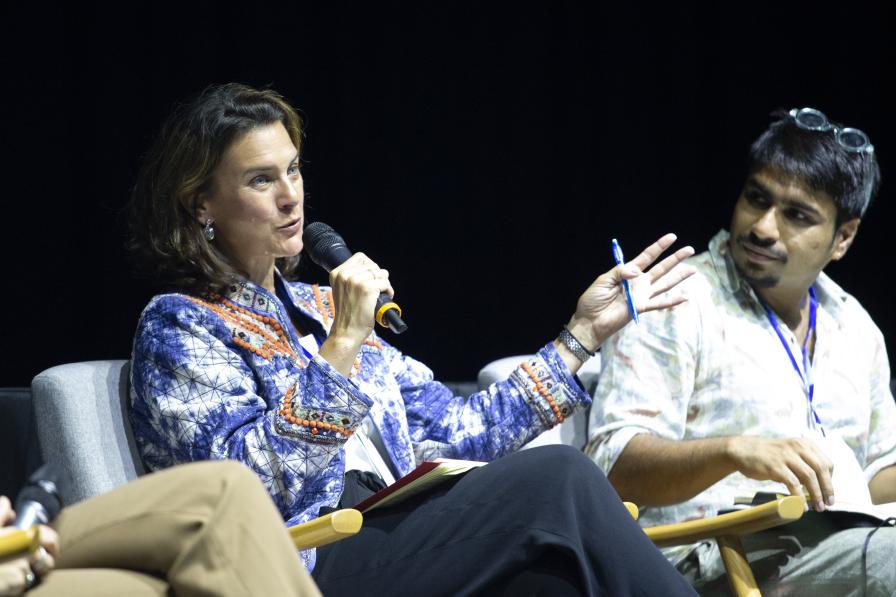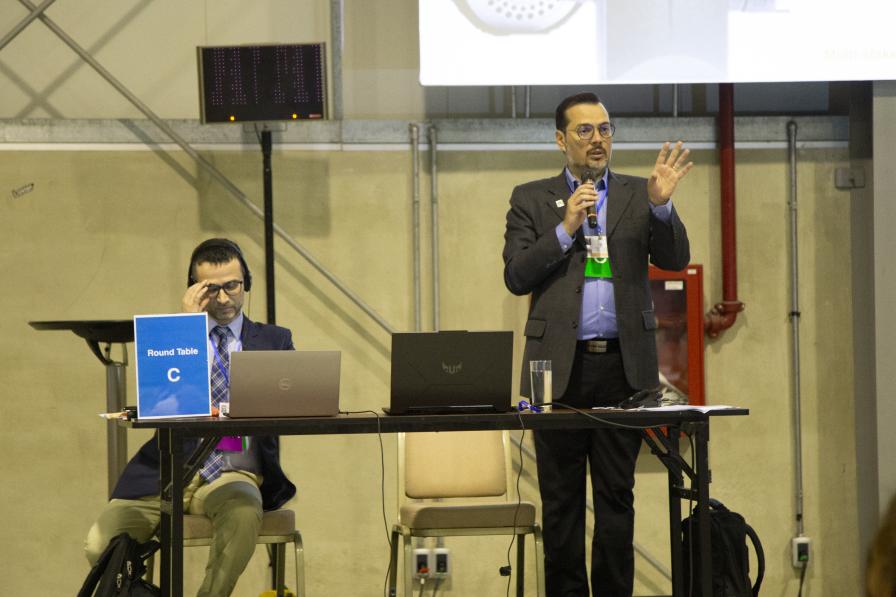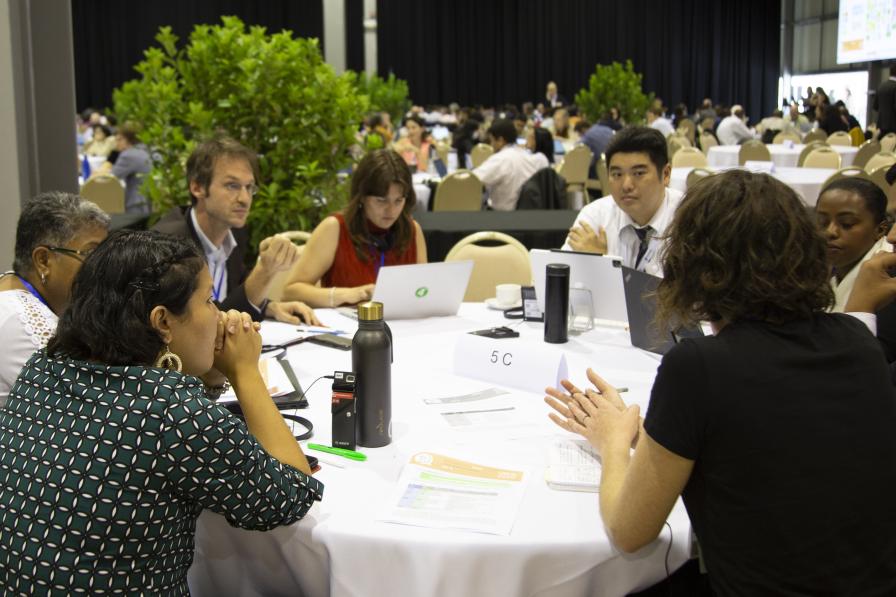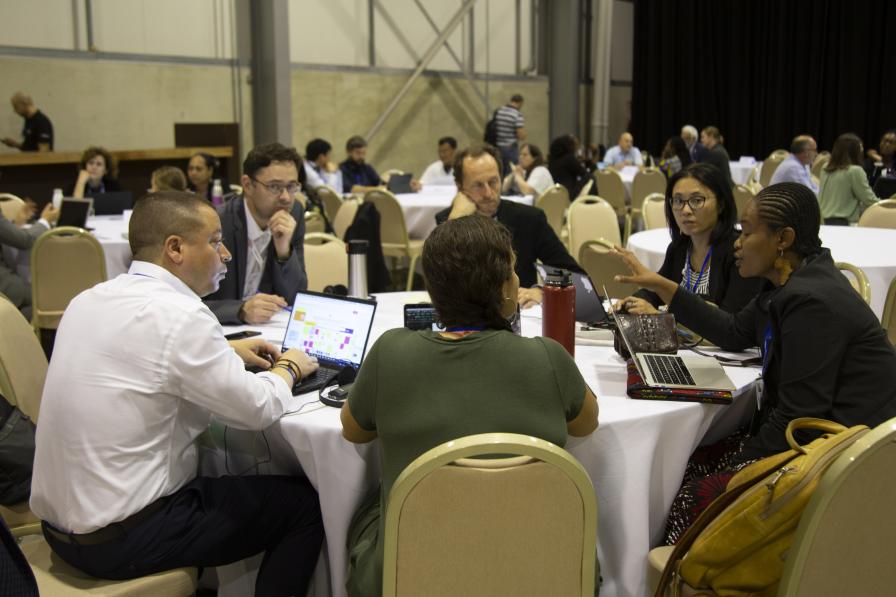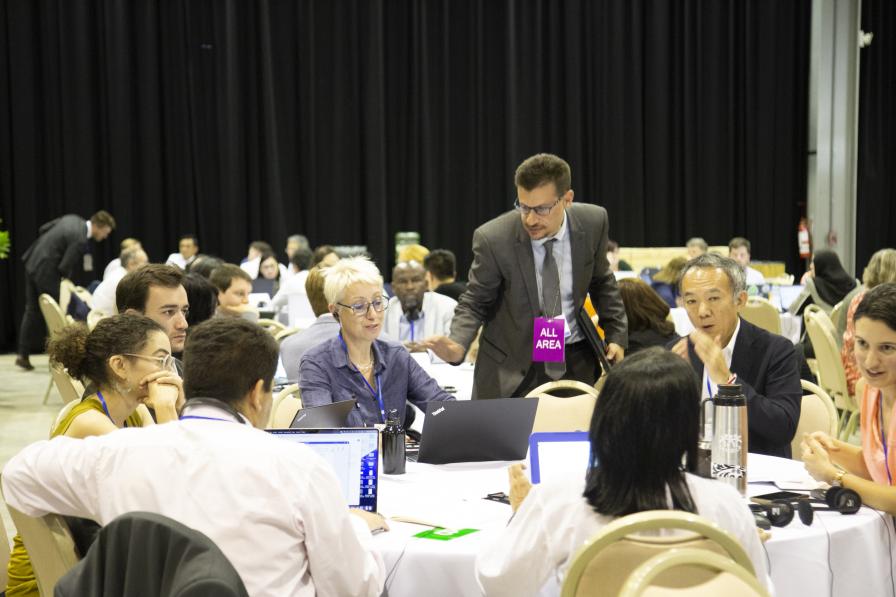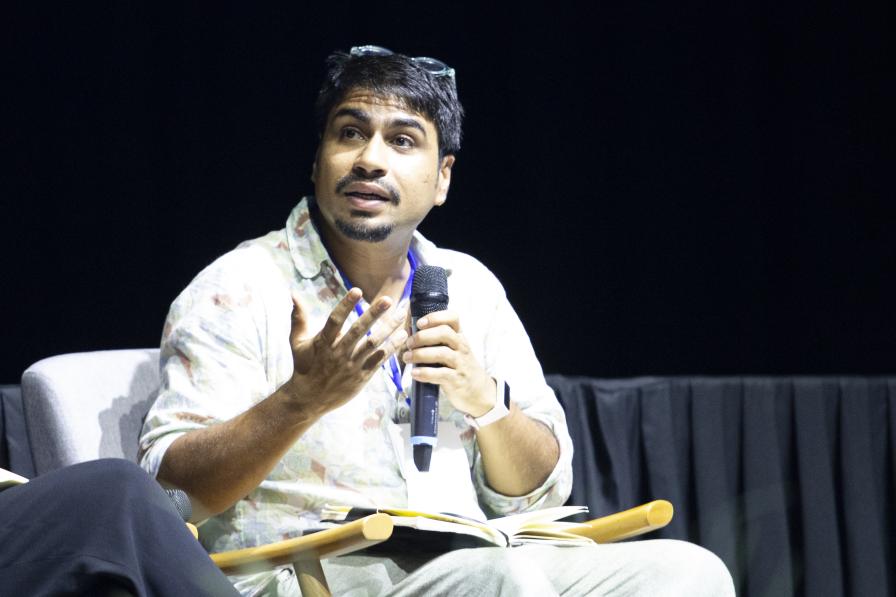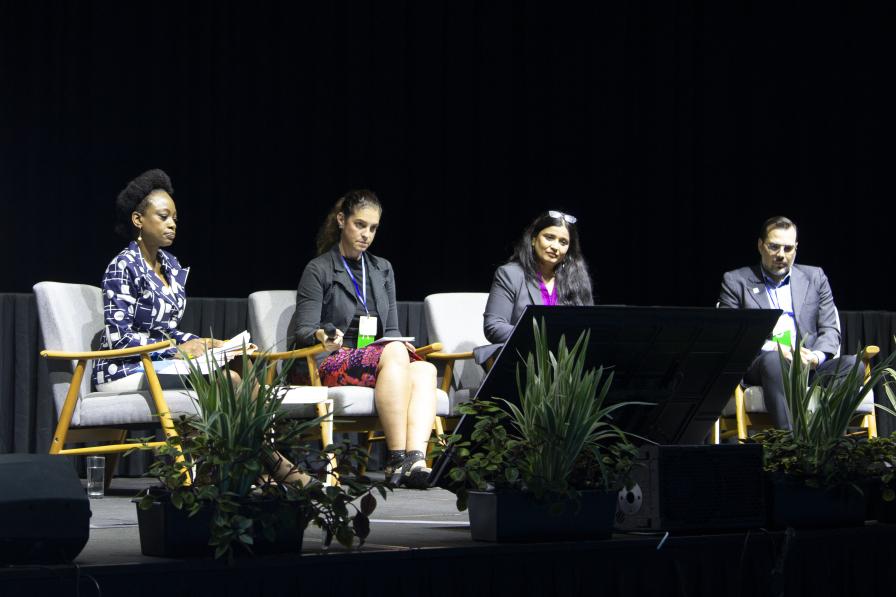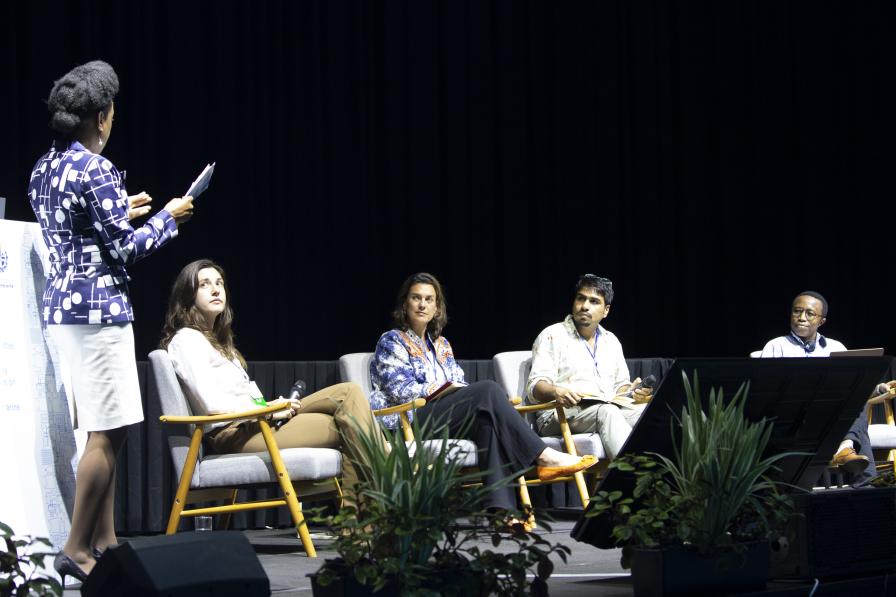Multi-Stakeholder Forum
The Multi-Stakeholder Forum, in conjunction with the first meeting of the Intergovernmental Negotiating Committee (INC-1) to develop an international legally binding instrument on plastic pollution, including in the marine environment, opened to a packed conference room in Punta del Este, Uruguay.
Want to dive deeper? Read the full Earth Negotiations Bulletin daily report.
In opening statements, Adrián Peña, Minister of Environment, Uruguay, highlighted that plastics are one of the biggest examples of unsustainable consumption and production, of “use and throw away,” with harmful implications for human health and the environment. Highlighting that a paradigm shift is needed to halt unbridled production of plastics and to tackle the increased and indiscriminate use of plastics, Peña drew attention to the need for substantial and structural changes and acknowledged that the process will have economic impacts that “we will have to deal with.”
Opening
Jyoti Mathur-Filipp, Executive Secretary, Plastic Pollution INC Secretariat, highlighted the importance of the active and constructive engagement of all stakeholders for an ambitious and meaningful outcome of the INC process, and noted that a higher level of innovation is required in order to open new pathways for novel, inclusive, and networked multilateralism to give a broader set of stakeholders a voice in the process.
Participants then convened in two roundtable sessions addressing stakeholder actions to combat plastic pollution along the lifecycle of plastics, and how to initiate a multi-stakeholder action agenda. In the first set of roundtables, participants convened in three discussion tracks on:
- eliminating and designing for circularity;
- circularity in practice; and
- waste minimization and remediation.
They also engaged in a roundtable session on the objectives, scope and structure of the multi-stakeholder action agenda.
Reporting back from the roundtable discussions, Bethanie Carney Almroth, University of Gothenburg, reported on the group’s discussions, noting the calls to define terms like “toxic,” “circularity” and others. She noted the need for standardization in product design, as well as the need for clear communication channels. She noted the need for financing, including through Extended Producer Responsibility (EPR) schemes. She also stressed the importance of addressing capacity needs, both for governments and stakeholders. Almroth noted that all the ideas from the Multi-Stakeholder Forum will be communicated to the INC, highlighting that this was not a negotiating process.
Carlos Silva Filho, ISWA, reported back on discussions on waste minimization and remediation, calling for more time to digest the large numbers of contributions received. He noted participants converging around issues such as harmonizing design standards, exchange of best practices, and harmonization of legislation and implementation by governments. He highlighted the need to eliminate non-essential products towards waste minimization. On remediation, he pointed to EPR schemes; defining the role of the private sector on plastic legacy issues; and, ensuring infrastructure for sound plastic waste management is established. He concluded by stressing that that this process will only be successful if all stakeholders participate, including the plastic industry.
Anjali Acharya, World Bank, emphasized the overwhelming focus on policy in the roundtable discussions. She noted that participants had expressed different views on the types of plastic polymers and substances to be regulated, with some strong opinions emerging. Some participants had excluded compostable plastics, while others urged exploring chemical recycling. In terms of scope, she highlighted that participants had considered how to accommodate actors in different socio-economic contexts in the process, and financing, sharing that this would take a larger voice as the INC process moves forward.
Reporting on the online forum discussions covering all three roundtable topics, moderator Willemijn Peeters, Founder, Searious Business, highlighted: the importance of monitoring and tracking, with clear, numerical, and verifiable targets; the need for behavioral changes of consumers; the need for a holistic approach to plastic pollution; participation of small island developing states, coastal communities, the Global South, and children and youth; the need for transparency and accountability; closed loops and caps on production; controls on waste exporting; fit-for-purpose infrastructure; taxation on virgin plastics and burning; EPR; bans on unrecyclable and single-use plastics; and harmonized design and reuse of plastics.
Moderator Femi Oke, International Journalist, closed the forum at 6:31 pm.
To receive free coverage of global environmental events delivered to your inbox, subscribe to the ENB Update newsletter.
All ENB photos are free to use with attribution. For photos from this side event, please use: Photo by IISD/ENB | Angeles Estrada
